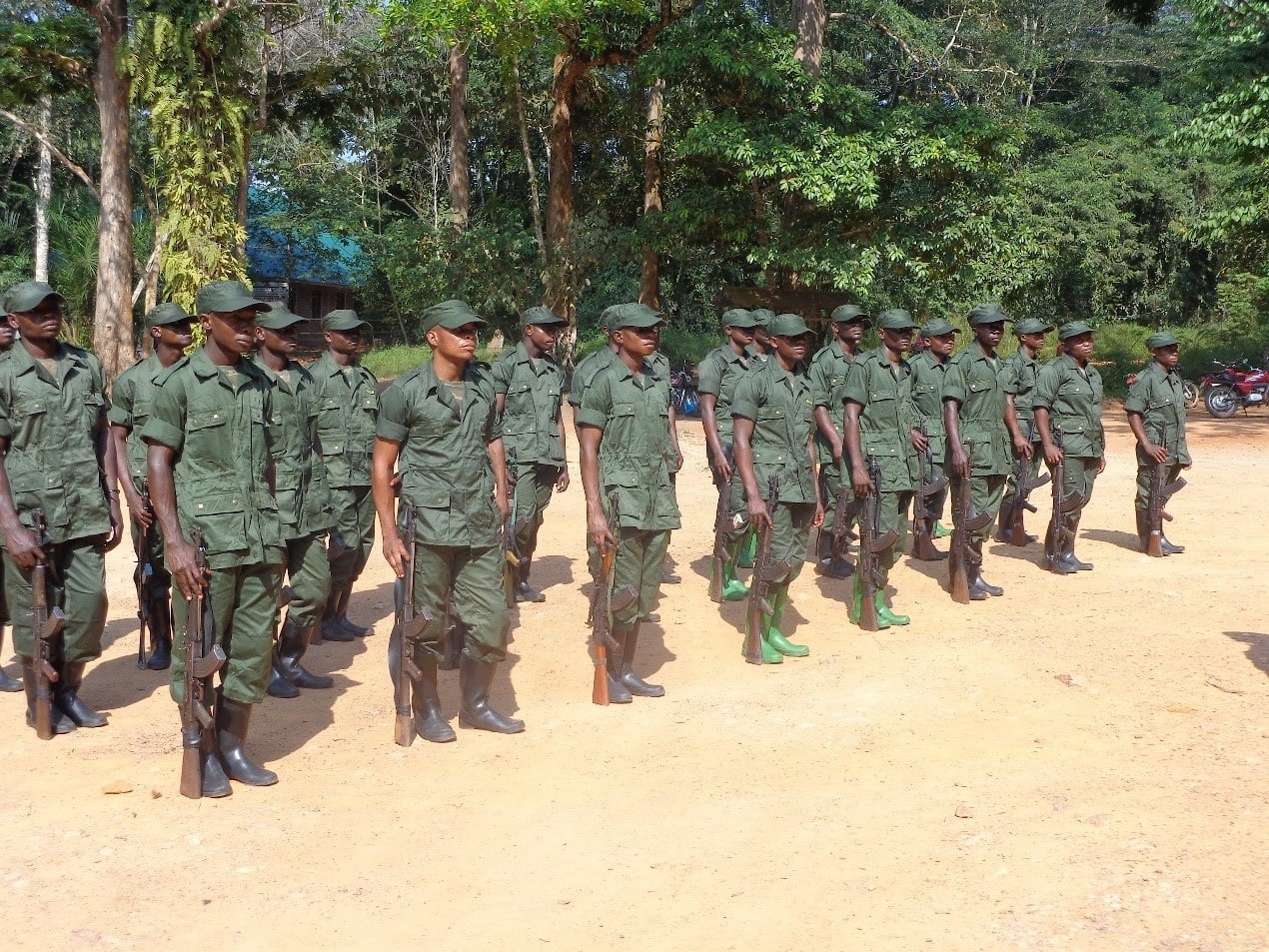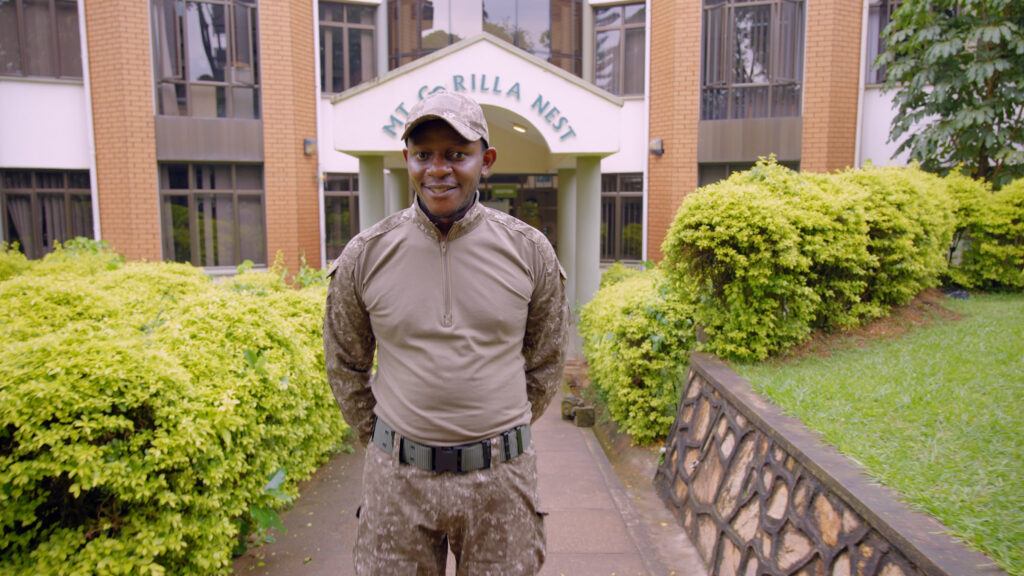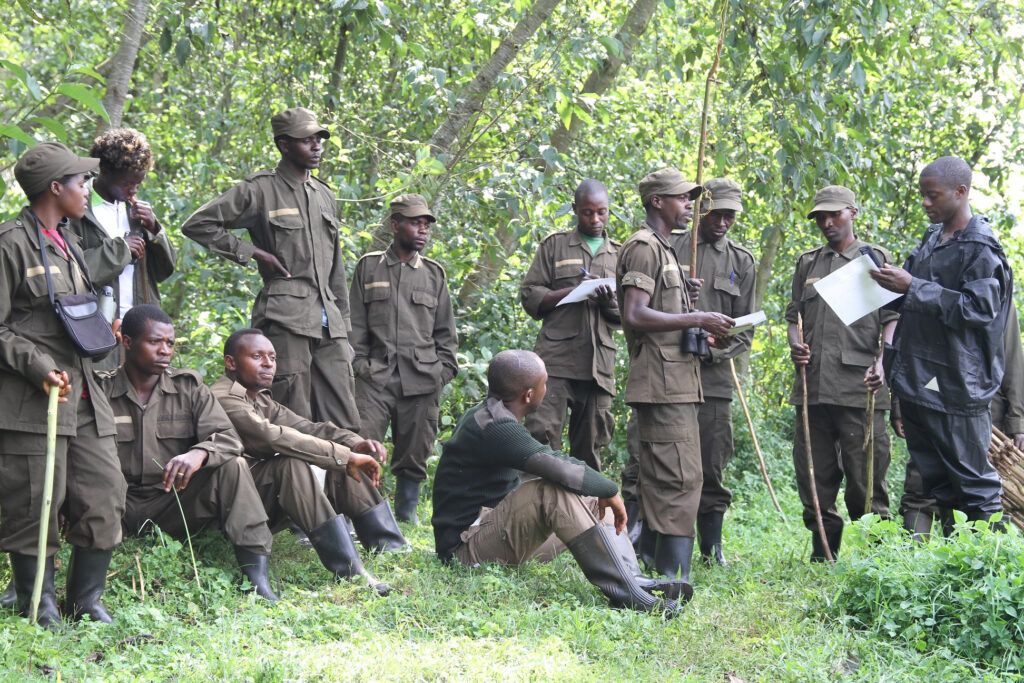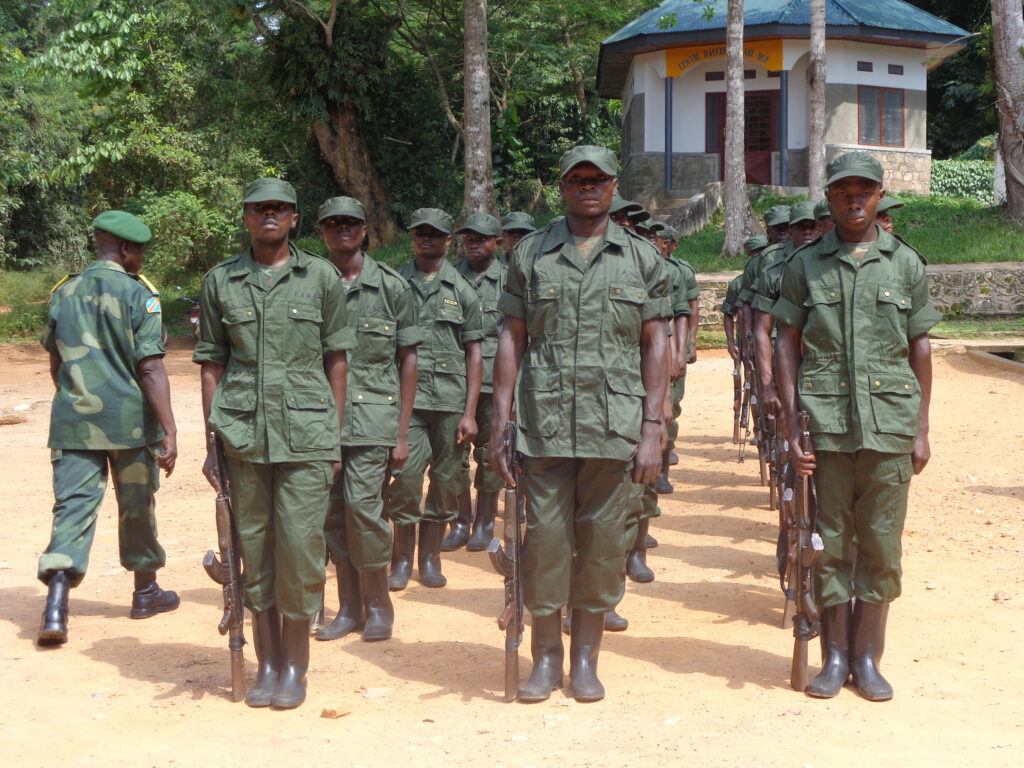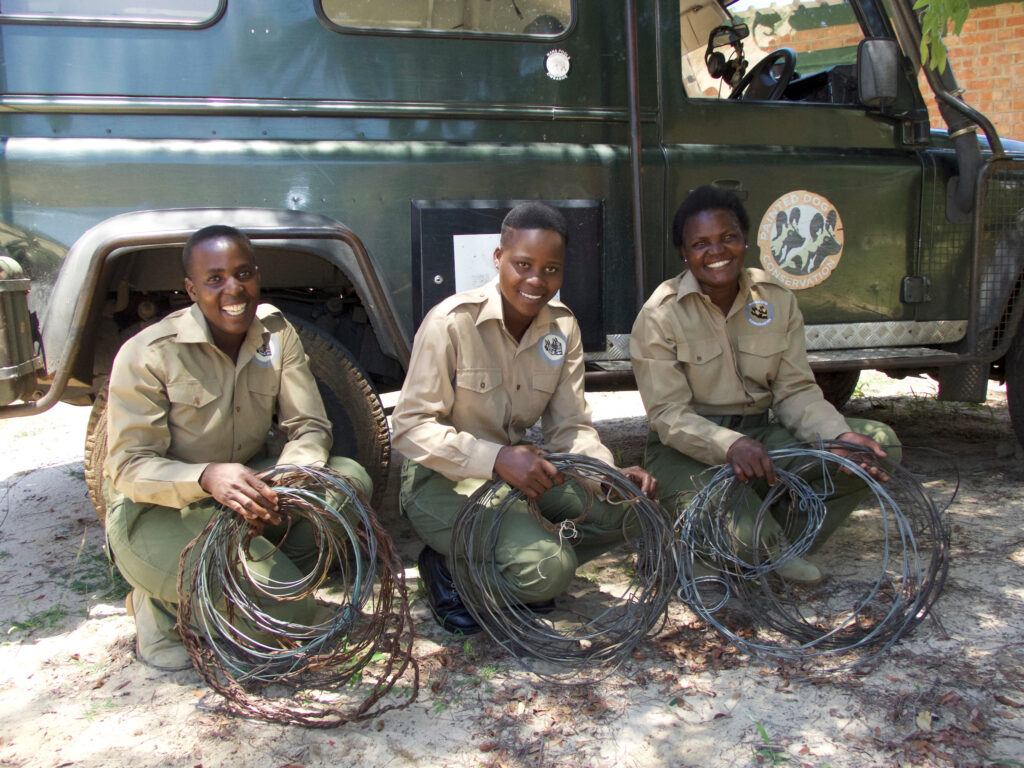World Ranger Day is celebrated on July 31st each year to commemorate wildlife rangers killed or injured in the line of duty, and to celebrate the work that rangers do to protect the planet’s natural treasures and cultural heritage. As many of us adore wildlife from the safety of our homes, these brave individuals around the world are risking their lives in the field every day to protect endangered species and habitat. Rangers, forest guards, warriors, scouts, field enforcement officers, the titles they serve under are many, but these brave women and men share a common purpose: protecting wildlife and wild landscapes around the world.
Long term species conservation is only possible with the help of empowered communities that are unified in the mission. Many of the animals they protect, like okapi, pangolins, and saiga antelope, are often targeted by poachers and the illegal wildlife trade. So in addition to law enforcement, rangers and conservationists also provide education and employment opportunities for communities to reduce threats to wildlife and dissuade poaching. Today, we pause for a moment to reflect on the courage and sacrifice that rangers make, by honoring fallen rangers and standing with rangers who bravely protect wildlife for future generations.
At WCN, we recognize the complex realities of law enforcement and wildlife protection. WCN supports an array of community-based conservation approaches that provide community members with livelihood opportunities that relieve pressure on wildlife. WCN’s Partner in Rwanda, the Rwanda Wildlife Conservation Association, trains a community of Marsh Rangers to help protect wild gray crowned crane habitat by patrolling, educating community members, and addressing any illegal activities.
In Uganda, home to half of the world’s endangered mountain gorillas, the Uganda Wildlife Authority (UWA) rangers work with Conservation Through Public Health (CTPH) to monitor all habituated gorilla groups every day. CTPH also trains rangers to monitor the gorillas’ health and collect fecal samples that are analyzed at the Gorilla Health Center. The population of mountain gorillas has almost doubled in the last 30 years thanks to the rangers that risk their lives to protect them every day.
In the Democratic Republic of Congo, Okapi Conservation Project helps support the well-being and healthcare costs, as well as children’s education, for rangers and their families working with the Congolese Institute for the Conservation of Nature to protect okapis.
In northern Costa Rica, Macaw Recovery Network manages a Women Ranger Program, initially established with women who had lost their jobs due to the COVID-19 pandemic. These women have become experts in monitoring the nests of endangered great green macaws, and completed certifications in environmental education and habitat restoration.
These are just a few examples of community-based conservation organizations collaborating with rangers to ensure that humans and wildlife can coexist and thrive together. Our conservation Partners around the world demonstrate that wildlife protection can be achieved in a variety of ways, with eco guardians like rangers working closely with community members. The economic and social security of communities surrounding protected areas is of utmost importance, as less economic pressure on human communities also means a safer space for both rangers and wildlife. By supporting the financial and social wellness of communities, peaceful coexistence between humans and wildlife can become a reality.
Thank you to all of the rangers, forest guards, warriors, scouts, and wildlife protection officers around the world. We hope you, and the communities you support, all stay safe!
